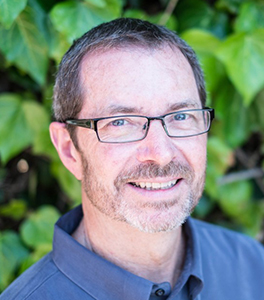OCD Tips #6: Am I, too, a Perpetrator of Sexual Harassment?

(Part six of a continuing series by the Cognitive Behavior Therapy Center of Southern California’s OCD experts)
With all of the recent, and long overdue, attention on the topic of sexual harassment in the media, it’s not surprising that this topic is showing up in the therapy offices of those of us who work with Obsessive Compulsive Disorder (OCD) sufferers. The self-scrutiny that the #MeToo movement has engendered in many people (primarily, though not exclusively, male) has ignited a firestorm of increased angst and anxiety in our clients who suffer from “thoughts of harm,” and related types of OCD. These sufferers have obsessional worries that something that they have done, or might do, may hurt another person.
Thoughts of harm OCD
Individuals with “Thoughts of Harm” OCD might worry, for example, that they might stab their spouse if a knife is physically nearby, or that they might molest their child while changing diapers, or that they might turn their car into oncoming traffic while driving, etc., etc. – the variety of hurtful possibilities is nearly infinite. Now, it may seem alarming to know that these individuals have had, and continue to have, such violent thoughts or mental images. The question naturally arises, how do we know that these people won’t act out their thoughts of harm? Indeed, this is the question that haunts each of these OCD sufferers: “What does it mean about me as a person that I have a thought like this? Does it mean that I could stab my spouse? Does it mean that I want to do this?” These thoughts so horrify and disgust these individuals that they struggle constantly trying to remove, reject, undo, or neutralize these thoughts using a variety of means. For example, a person might try to “pray” the “bad” thoughts away or to “undo” such a thought by deliberately thinking a “good” thought in its place. The fear is that if they don’t try to do something to neutralize the thought they might act it out, or, at least if they don’t try to neutralize it, this lack of trying would be an “endorsement” of that act, making them a “bad” or “immoral” person.
Did I just sexually harass someone?
Now, with all the current attention on the accusations and confessions of sexual harassment in the media and on the internet, we are seeing more and more individuals coming into our offices with obsessional worries that, they too, might have sexually harassed someone or might do so, inadvertently, in the future. Recently, an OCD client came in for therapy at the Torrance office of CBT Socal. He was a software engineer and worked at one of the local tech companies. This individual was tortured by an incident that had happened years before. He had met a woman, they had hit it off and partied together until late at night. They had then returned to his apartment and, though there was some minor kissing and fondling, they slept side by side chastely. They had breakfast in the morning together and parted amicably. Though their behavior seemed only minimally (and consensually) sexual, this client continues to wonder if he might have date raped this woman. He says, “There were alcohol and drugs involved, so there is some possibility that I wasn’t in my right mind, so I might have done something harmful to this woman and not know it!” He has reviewed that night in his mind hundreds, if not thousands, of times and has asked friends and mental health professionals if they thought that he might have raped that woman. Many people have tried to reassure him but none of this has helped to remove the obsessional doubt he continues to have. He is trapped in a cycle of anxious doubt, compulsive reviewing, and seeking reassurance. Each time he sees in the media another instance of sexual harassment, his worries and doubts get inflamed and he feels compelled to go through repeated cycles of mentally reviewing that night. Another client fears, as he passes a homeless man or woman in the street, that he may have reached out inadvertently and fondled that person or even raped him or her. He, too, reviews and reviews these “incidents” to try to be “certain” that he didn’t do the thing that he feared he might have done. Yet, as outlined in the previous blog post on mental reviewing, these compulsive attempts to banish uncertainty is futile and actually fans the obsessional doubts and increases his suffering. He also tries to prevent his worries by turning on the video function on his smart phone in his pocket whenever he passes someone who might be “vulnerable.” He says, if he later has doubts, that he can replay the video in order to listen for signs of struggle and protest from the “incident”. However, even this can still raise doubts as even when the video is silent, he is plagued by the thought, “What if there is no sound because the person just fearfully submitted to me?”
People with OCD are less likely than non-OCD people to act out violent thoughts.
It is very important to note at this point that these people are not actual sexual acting outers – people with OCD are the least likely people to act out their negative, aggressive, violent, or sexually violent thoughts. These are people who inordinately fear the presence of these thoughts and don’t realize that non-OCD people also have these kinds of thoughts. There is a long distance between having a thought and then acting it out – it has to first go through the doorway of DECISION. Effective therapy for these OCD individuals involves setting up repeated situations where the person has an “opportunity” to have those thoughts and “let them be” by voluntarily not engaging in all of the compulsive safety behaviors, i.e., the mental reviewing, the asking for reassurance, the videotaping. This “exposure and response prevention” allows them to systematically test the idea that they are dangerous to others by just having those thoughts of harm in mind. Over time, with repeated exposures to the feared thoughts and by refraining to do the compulsions, the individual gradually learns to lose the fear of one’s thoughts and to trust oneself again. Though deeply disturbing to the individual with OCD, this is just another form of OCD and, thus, is quite treatable with the CBT techniques of exposure and response-prevention.
If you think that you might have OCD and would like to consult us about the treatment options, please contact the OCD experts here at the Cognitive Behavior Therapy Center of Southern California.

Author Dr. Rodney Boone is the Founder and Director of CBT SoCal, has taught as a former member of the faculty in UCLA’s Department of Psychiatry, and practices in Glendale and Torrance, CA.

